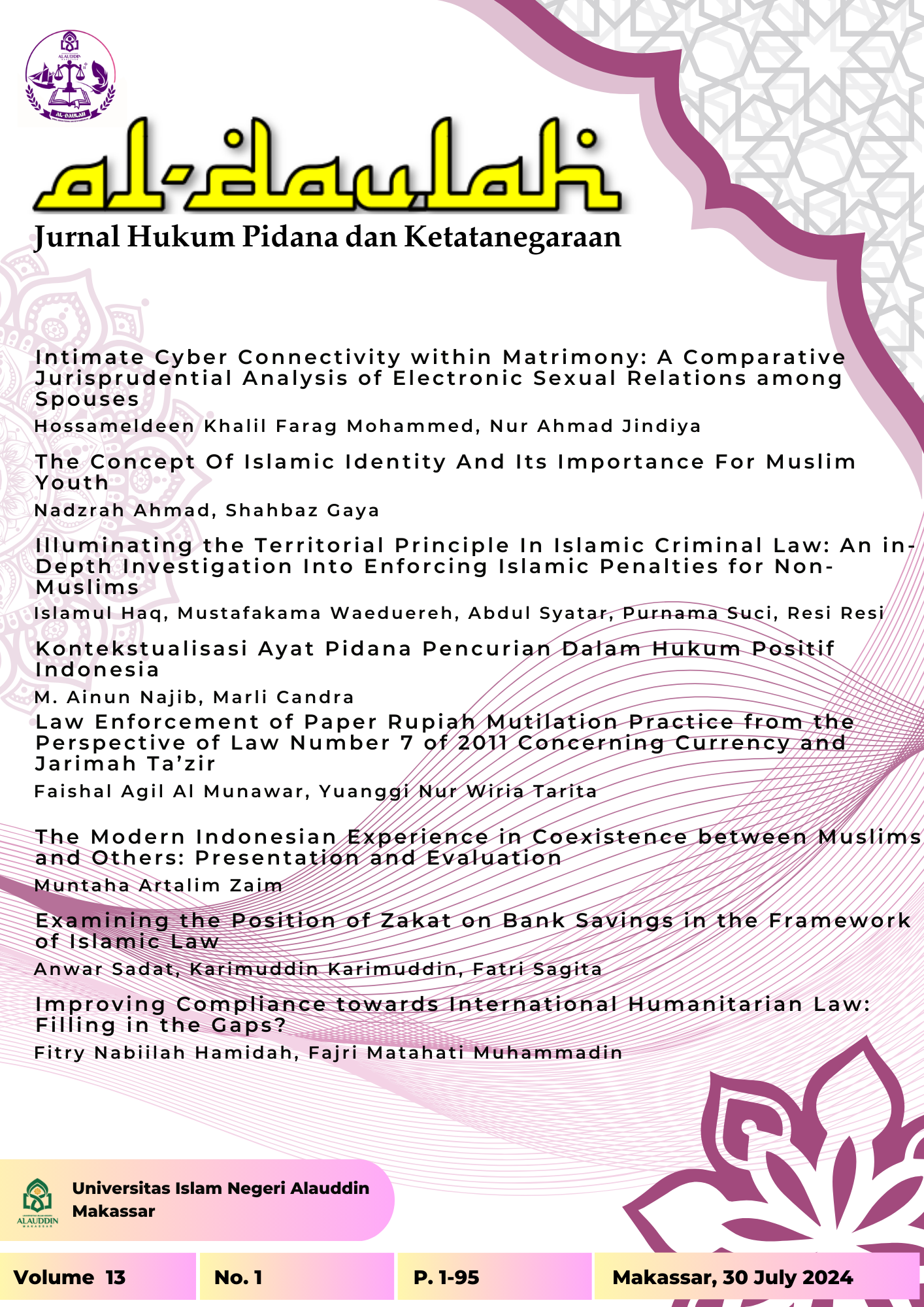An Actualization of Hifdz Al-Nafs Theory In Sentencing: A Philosophical Review Of Prisoner’s Rights To Healthcare At The Class IIb Detention Center In North Sinjai
Abstract
The fulfillment of convicts’ rights in various aspects, particularly in terms of healthcare services, is still not optimal. This article aimed to identify the actualization of hifdz al-Nafdz's theories in granting prisoner’s rights to healthcare through an approach to the philosophical values of Islamic punishment and national law. Field research is research that raises data and problems in the field (research location). The sources of data obtained were primary and secondary data. This study employed qualitative research using a normative approach. The results of the study showed that textually, the implementation aligned with the hifdz al-Nafdz' mission in Maqashid Sharia. However, empirically, the implementation of hifdz al-Nafdz' in terms of health services has not shown perfect evidence. Islam placed great importance on the benefit aspect. Currently, the detention center accommodates 222 occupants, exceeding its maximum capacity of 100 occupants. Thus, the government should consider expanding the land area of detention centers and establishing polyclinics with additional healthcare personnel. Furthermore, appropriate treatment for detainees is necessary. Regarding law enforcement, the government has implemented regulations to ensure a balanced legal process and prevent any imbalances.
The authors of a work hold the copyright and grant the Al-Daulah: Jurnal Hukum Pidana dan Ketatanegaraan the right of first publication. The work is also licensed under the Creative Commons Attribution License (CC BY 4.0), which enables others to share the work while acknowledging the authorship and initial publication in the journal. The authors can make separate contractual agreements for the non-exclusive distribution of the published version of the work, such as by posting it to an institutional repository or editing it for a book, with an acknowledgment of its initial publication in this journal. Authors are allowed and encouraged to post their work online, such as in institutional repositories or on their website, before and during the submission process. This can lead to productive exchanges and greater citation of the published work.


